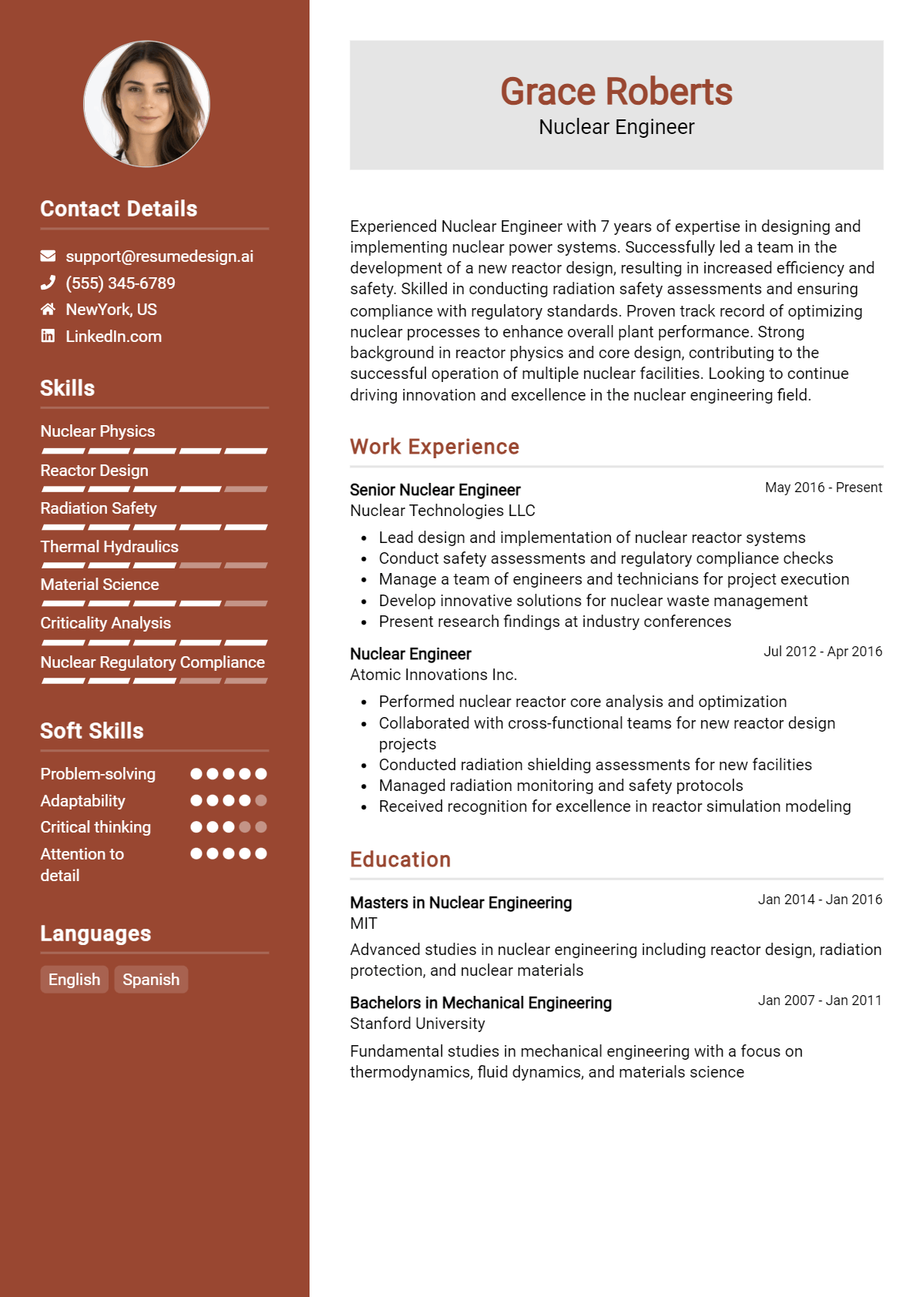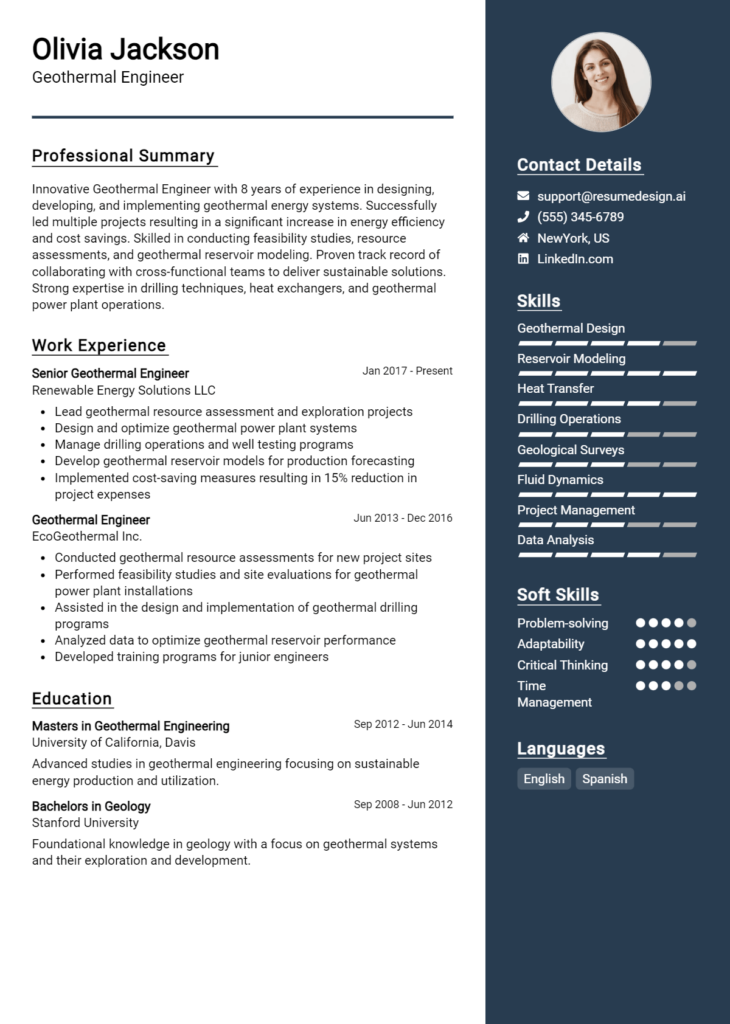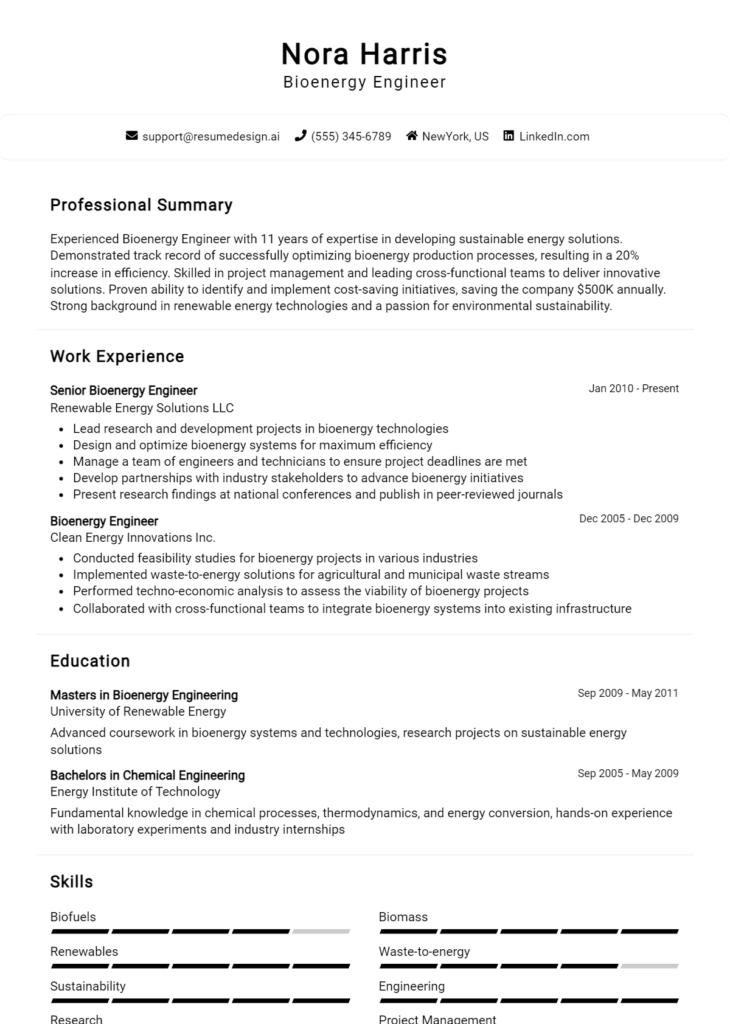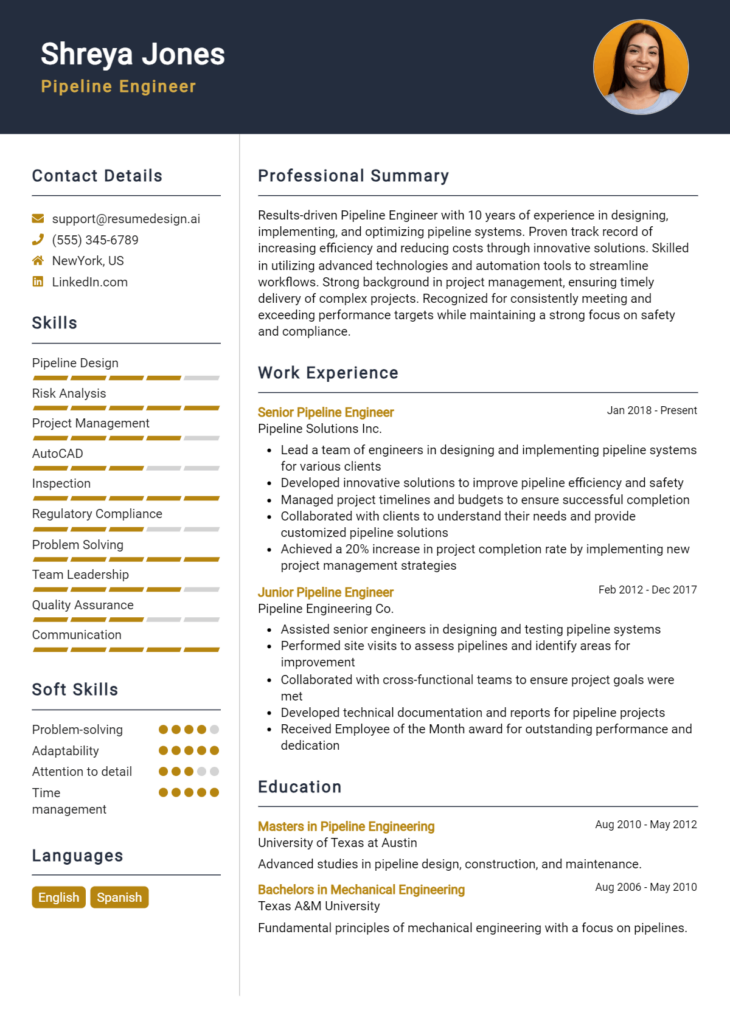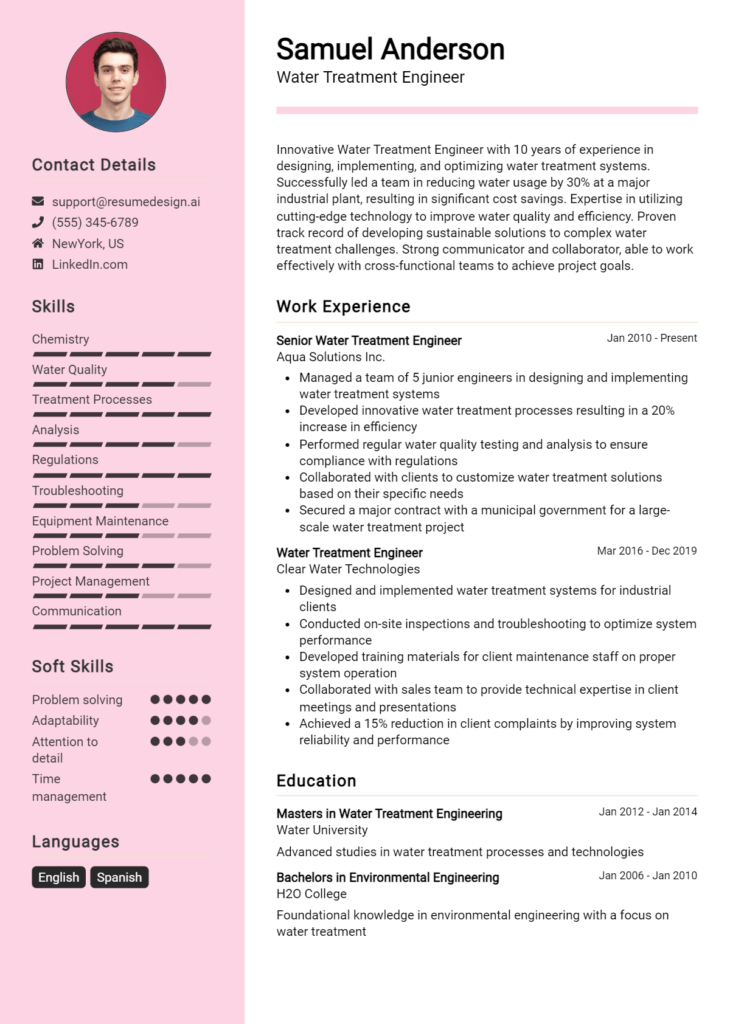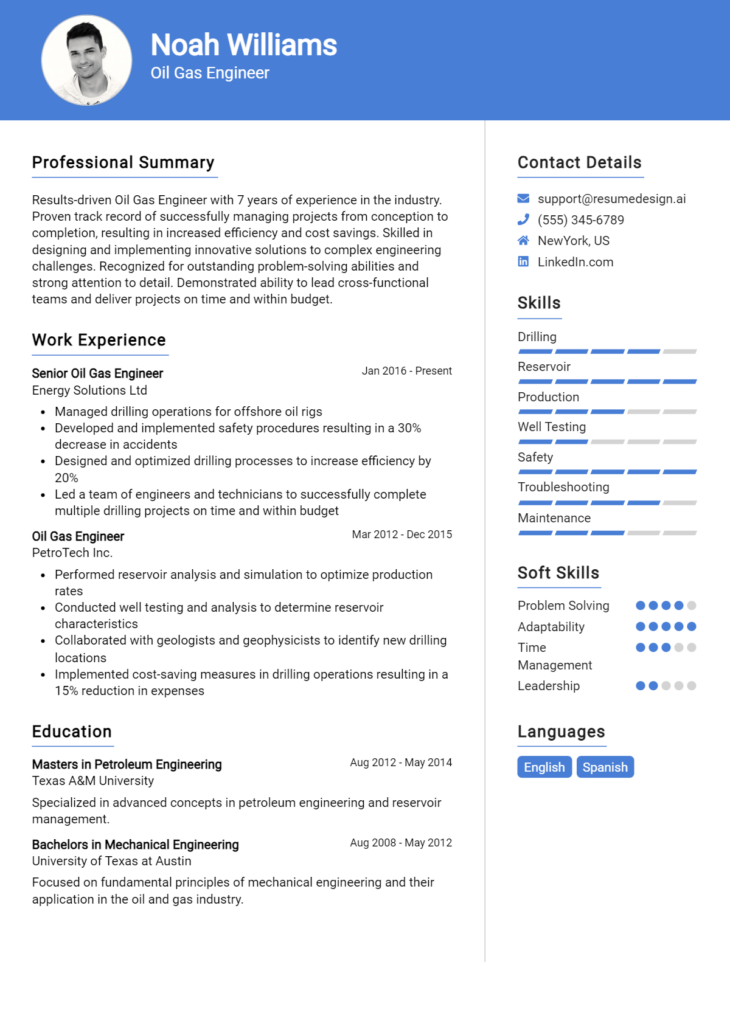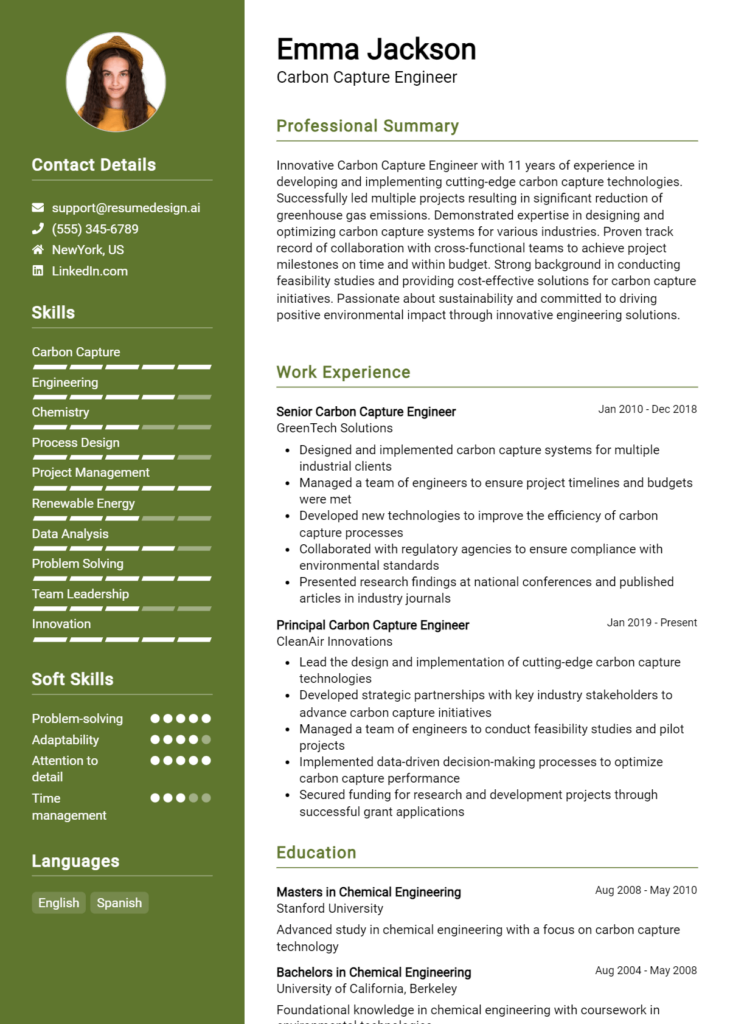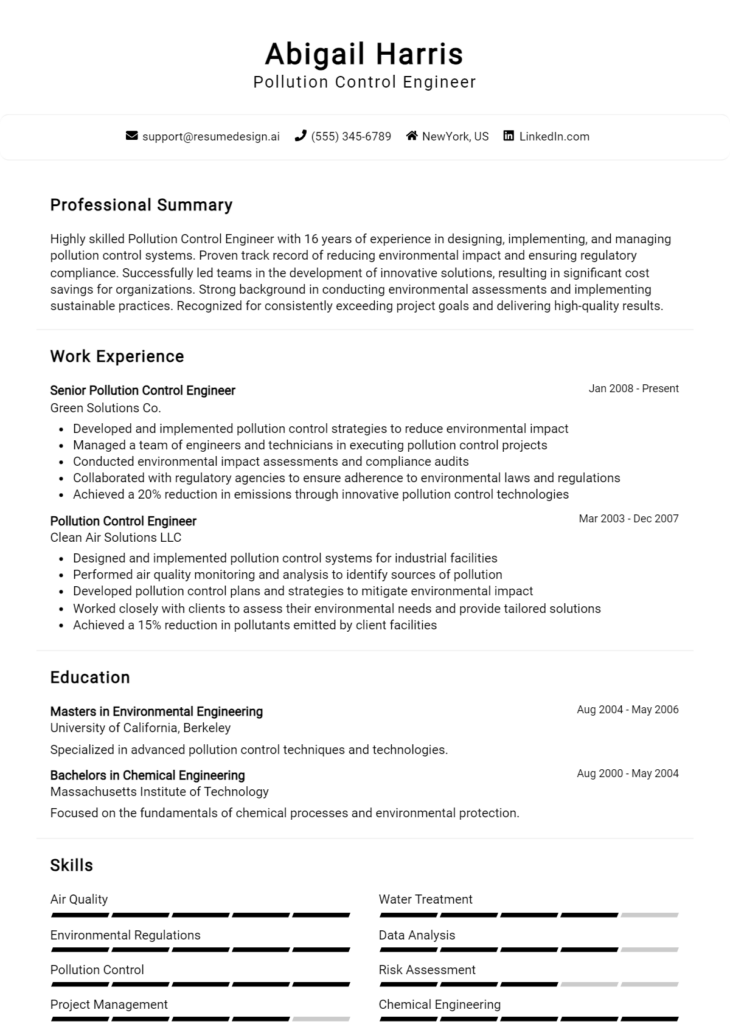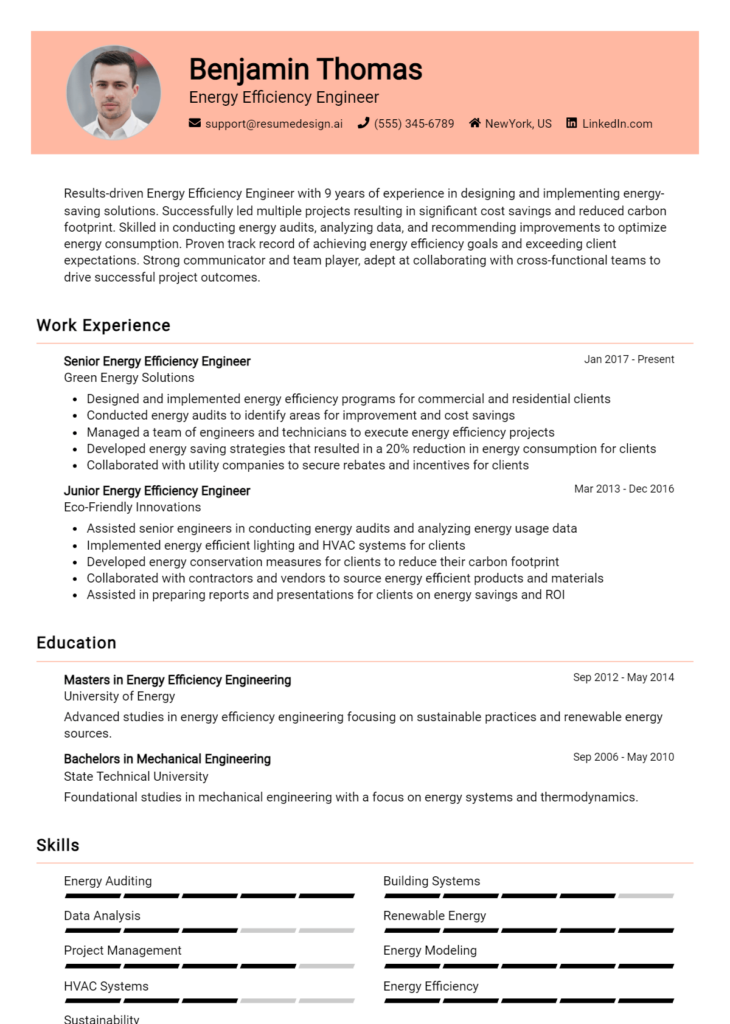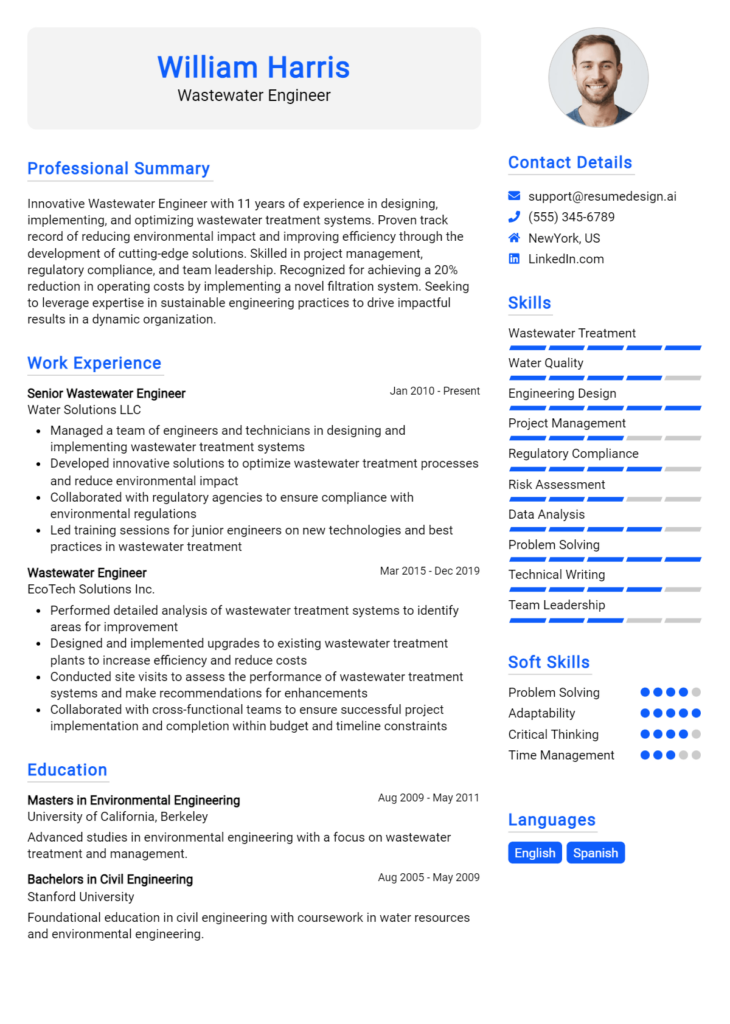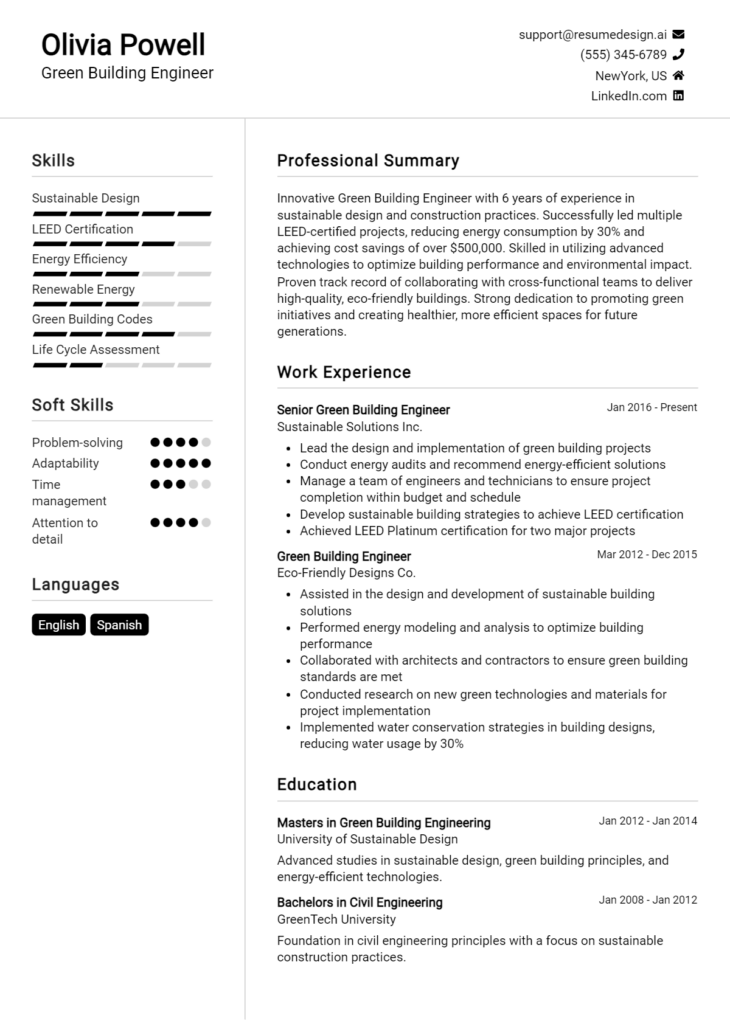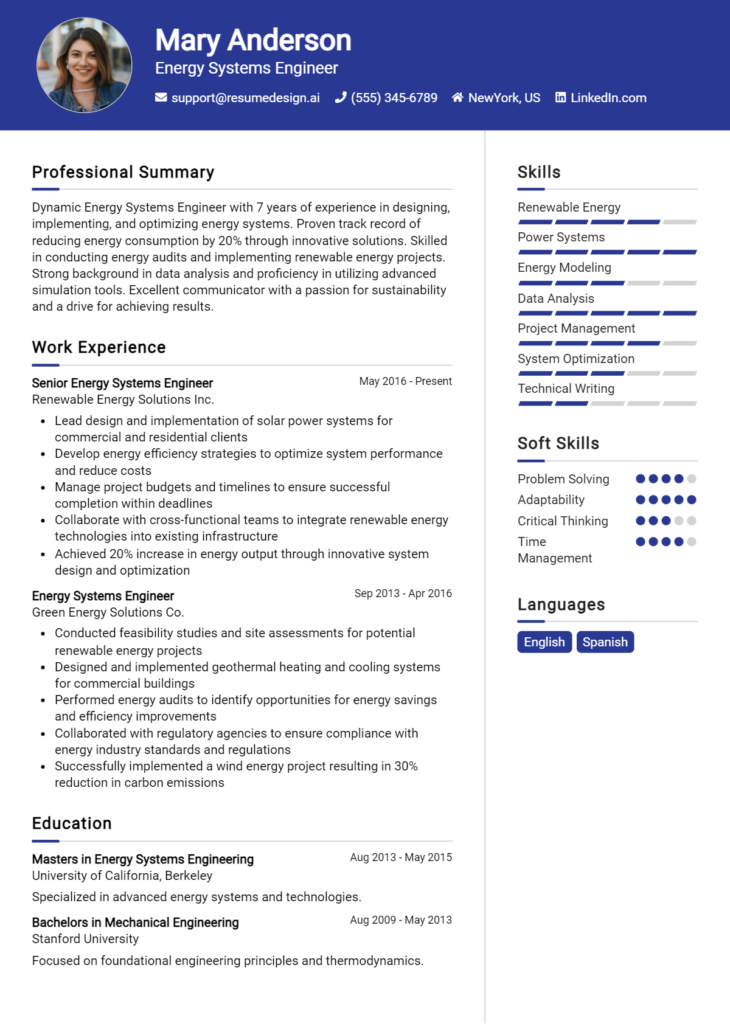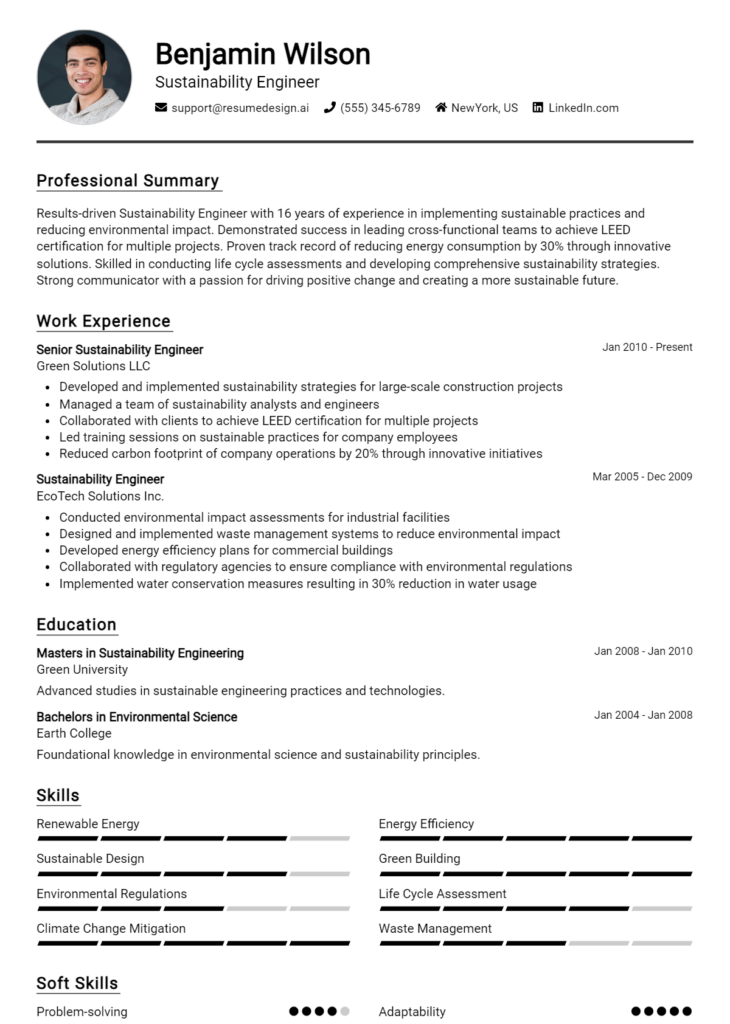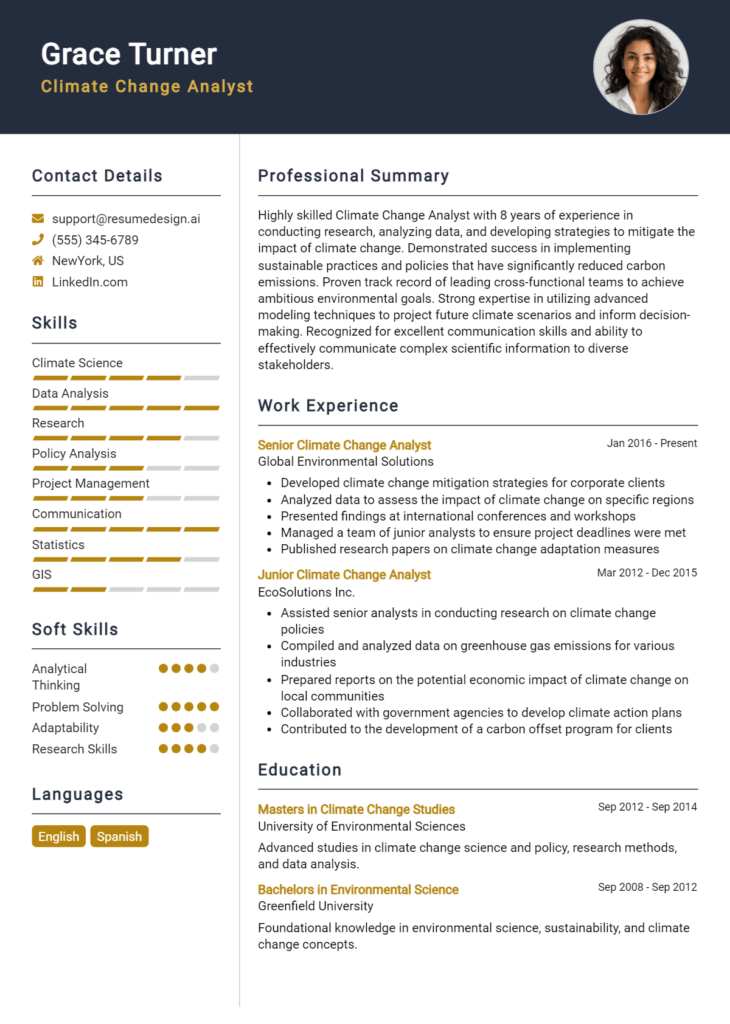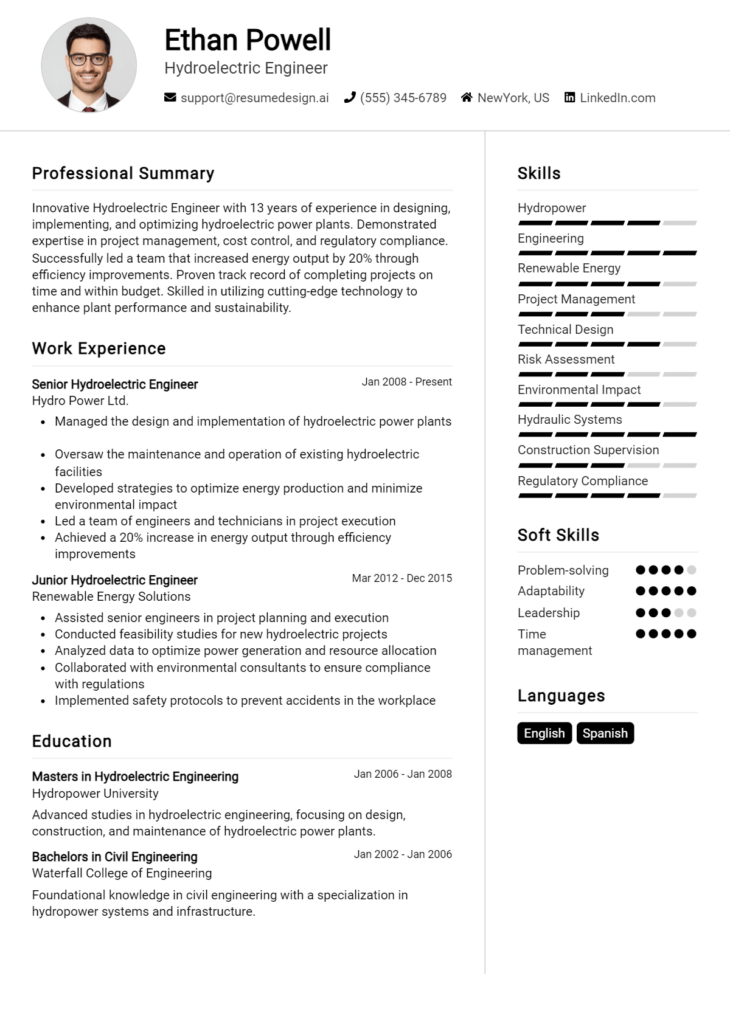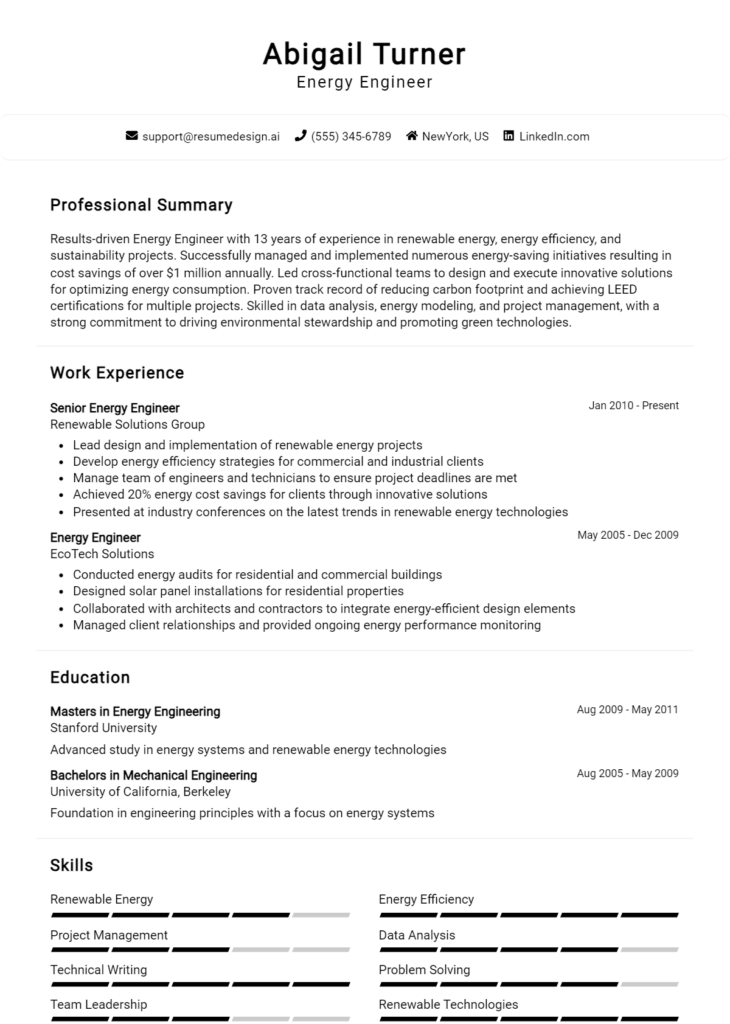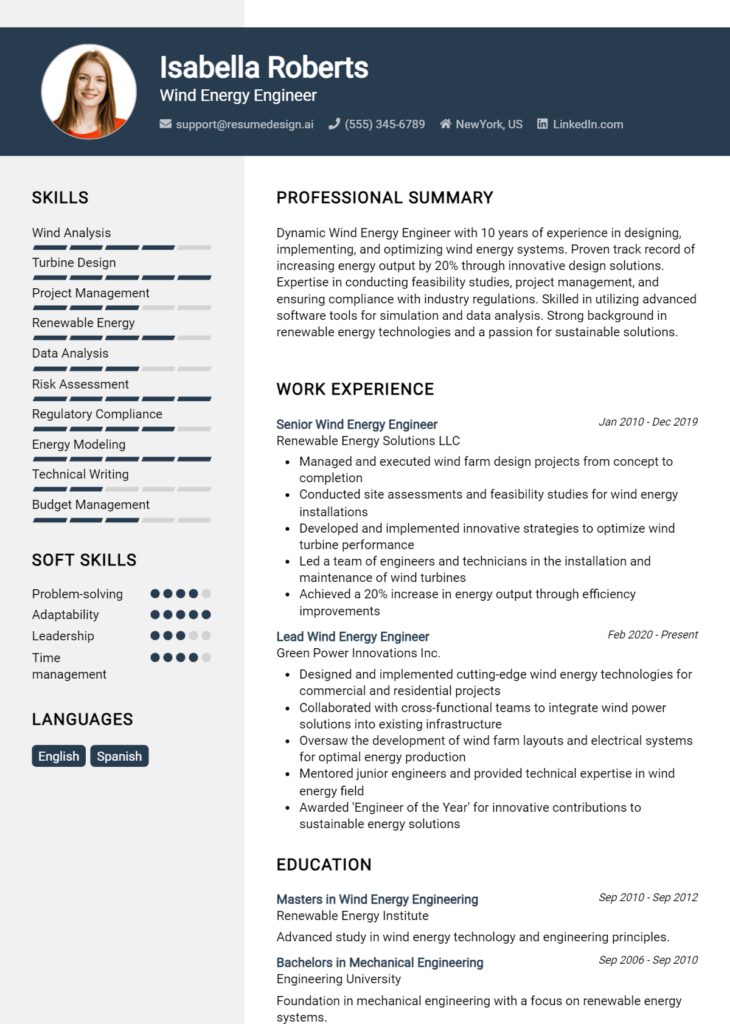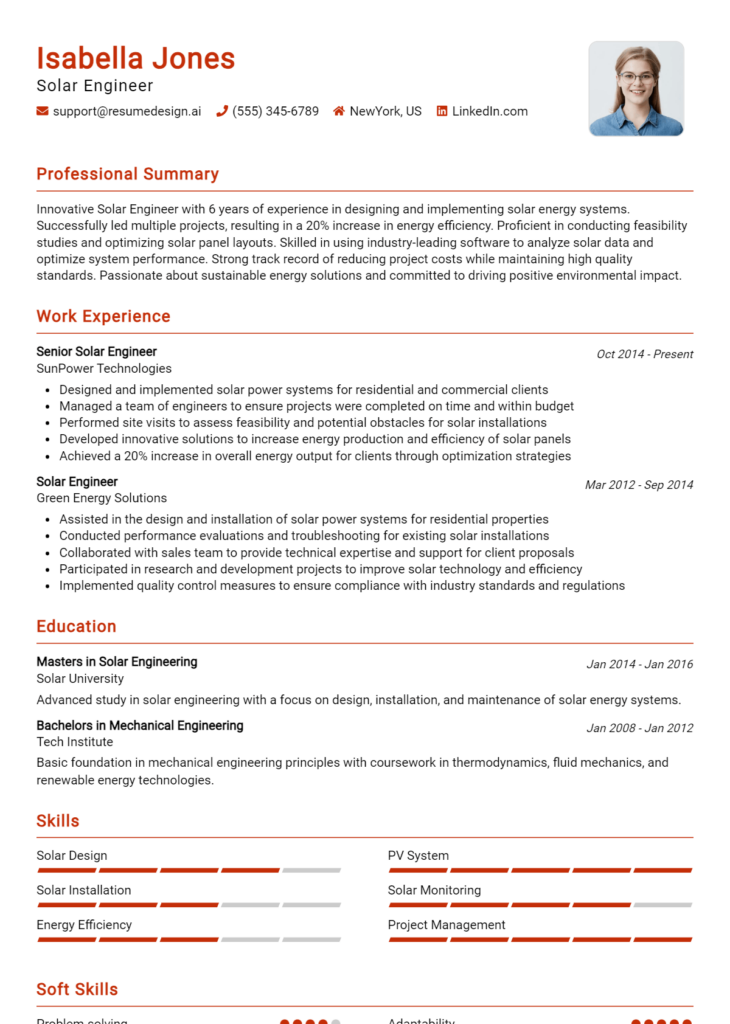Nuclear Engineer Core Responsibilities
Nuclear Engineers play a crucial role in designing, developing, and maintaining nuclear systems and technologies. They must possess strong technical, operational, and problem-solving skills to effectively collaborate across various departments, including safety, regulatory compliance, and project management. By analyzing complex data and troubleshooting issues, they ensure the safe and efficient operation of nuclear facilities. A well-structured resume highlighting these qualifications is essential to demonstrate their value in achieving organizational goals.
Common Responsibilities Listed on Nuclear Engineer Resume
- Design and develop nuclear reactor systems and components.
- Conduct safety assessments and risk analysis for nuclear operations.
- Collaborate with multidisciplinary teams to ensure compliance with regulations.
- Monitor and analyze system performance and efficiency.
- Implement and maintain safety protocols and emergency response plans.
- Conduct research to advance nuclear technology and applications.
- Prepare technical documentation and reports for stakeholders.
- Provide technical support and guidance during facility operations.
- Evaluate and mitigate environmental impacts of nuclear facilities.
- Train personnel on safety procedures and operational protocols.
- Participate in regulatory inspections and audits.
- Develop and oversee maintenance and operational procedures.
High-Level Resume Tips for Nuclear Engineer Professionals
In the competitive field of nuclear engineering, a well-crafted resume serves as a critical tool for job seekers aiming to make a strong first impression on potential employers. Given that hiring managers often sift through numerous applications, your resume needs to effectively showcase not only your technical skills but also your achievements, ensuring you stand out in a crowded candidate pool. This guide will provide practical and actionable resume tips specifically tailored for nuclear engineer professionals, helping you to present your qualifications in the best possible light.
Top Resume Tips for Nuclear Engineer Professionals
- Tailor your resume to each job description, emphasizing the skills and experiences that align with the specific requirements of the position.
- Showcase relevant experience by clearly detailing your previous roles, responsibilities, and projects related to nuclear engineering.
- Quantify your achievements by including metrics and results, such as improvements in safety protocols or efficiency gains in projects.
- Highlight industry-specific skills, such as proficiency in radiation safety practices, nuclear reactor design, or regulatory compliance.
- Include certifications and licenses that are relevant to the nuclear engineering field, such as Certified Nuclear Engineer (CNE) or Professional Engineer (PE) status.
- Utilize keywords from the job posting to ensure your resume passes through applicant tracking systems (ATS) and grabs the attention of hiring managers.
- Focus on continuous education and training, mentioning any workshops, seminars, or courses related to advancements in nuclear technology.
- Demonstrate teamwork and collaboration skills by describing your role in multidisciplinary teams or cross-functional projects.
- Keep your resume concise and organized, using clear headings and bullet points to make it easy for employers to skim through your qualifications.
By implementing these tailored resume tips, nuclear engineering professionals can significantly enhance their chances of landing a job in this specialized field. A well-structured and targeted resume not only highlights your technical expertise but also conveys your dedication and suitability for the role, making you a compelling candidate to prospective employers.
Why Resume Headlines & Titles are Important for Nuclear Engineer
In the competitive field of nuclear engineering, a well-crafted resume headline or title plays a crucial role in capturing the attention of hiring managers. A strong headline serves as an immediate summary of a candidate's key qualifications, succinctly conveying their expertise and suitability for the position. By distilling essential skills and experiences into one impactful phrase, a compelling headline not only piques interest but also sets the tone for the rest of the resume. It should be concise, relevant, and tailored to the specific job being applied for, making it an essential element of an effective job application.
Best Practices for Crafting Resume Headlines for Nuclear Engineer
- Keep it concise: Aim for a headline that is one to two lines long.
- Be role-specific: Tailor the headline to reflect the position you are applying for.
- Highlight key qualifications: Include your most relevant skills or experiences.
- Use industry-specific terminology: Incorporate terms familiar to nuclear engineering hiring managers.
- Avoid jargon: Ensure clarity by avoiding overly technical language that may confuse readers.
- Focus on achievements: Consider integrating quantifiable accomplishments for added impact.
- Make it engaging: Use action verbs or compelling adjectives to draw interest.
- Revise and refine: Edit your headline until it accurately represents your unique value proposition.
Example Resume Headlines for Nuclear Engineer
Strong Resume Headlines
Dynamic Nuclear Engineer with 10+ Years of Experience in Reactor Design and Safety Analysis
Results-Driven Nuclear Engineer Specializing in Advanced Fuel Cycle Technologies
Innovative Nuclear Engineer with Proven Track Record in Project Management and Regulatory Compliance
Weak Resume Headlines
Nuclear Engineer
Experienced Professional Seeking New Opportunities
The strong headlines are effective because they clearly communicate the candidate's specific expertise, years of experience, and focus areas within the nuclear engineering field. They provide a glimpse into the candidate's professional identity, making a memorable impression on hiring managers. In contrast, the weak headlines lack specificity and fail to highlight any unique qualifications or strengths, leaving a bland and forgettable impression that does not entice further consideration.
Writing an Exceptional Nuclear Engineer Resume Summary
Writing a compelling resume summary is crucial for Nuclear Engineers looking to make a strong impression on hiring managers. This brief yet impactful section serves as the first opportunity to showcase key skills, relevant experience, and notable accomplishments that align with the job role. A well-crafted summary can quickly capture attention, setting the candidate apart in a competitive job market. It should be concise and tailored specifically to the position being applied for, ensuring that it resonates with the employer’s needs and expectations.
Best Practices for Writing a Nuclear Engineer Resume Summary
- Quantify Achievements: Use numbers and data to highlight your accomplishments, such as successful project completions or efficiency improvements.
- Focus on Key Skills: Emphasize relevant technical skills, certifications, and competencies that align with the job description.
- Tailor to the Job: Customize your summary for each application to reflect the specific requirements and responsibilities of the position.
- Be Concise: Keep the summary brief, ideally within 2-4 sentences, to maintain the reader's attention.
- Use Action Verbs: Begin with strong action verbs to convey a sense of initiative and impact.
- Highlight Relevant Experience: Mention specific roles, projects, or environments that relate directly to the job you’re applying for.
- Showcase Problem-Solving Abilities: Include examples of how you’ve effectively tackled challenges in past positions.
- Maintain Professional Tone: Ensure the summary is formal and technical, reflecting the seriousness of the nuclear engineering field.
Example Nuclear Engineer Resume Summaries
Strong Resume Summaries
Results-driven Nuclear Engineer with over 7 years of experience in reactor design and safety analysis. Successfully led a team to improve reactor efficiency by 15% through innovative thermal management solutions.
Detail-oriented Nuclear Engineer skilled in regulatory compliance and safety protocols, with a proven track record of reducing operational risks by 20% in a high-stakes environment. Holds a Professional Engineer (PE) license.
Highly analytical Nuclear Engineer with expertise in computational modeling and simulation. Played a key role in a project that saved $2 million in operational costs by optimizing fuel usage strategies.
Weak Resume Summaries
Nuclear Engineer with some experience in the field. Looking for a job that allows me to use my skills.
An engineer with a background in nuclear technology and a desire to contribute to the industry. Eager to learn and grow.
The examples provided illustrate the stark contrast between strong and weak resume summaries. Strong summaries effectively highlight specific achievements, quantify results, and demonstrate direct relevance to the nuclear engineering role, making them compelling to hiring managers. In contrast, weak summaries lack detail and specificity, making them forgettable and less impactful in a competitive job market.
Work Experience Section for Nuclear Engineer Resume
The work experience section of a Nuclear Engineer resume is crucial as it serves as a platform to demonstrate the candidate's technical skills, leadership capabilities, and ability to produce high-quality results in a field where precision and safety are paramount. This section not only highlights specific engineering competencies but also showcases the individual's experience in managing teams and projects effectively. By quantifying achievements and aligning their experience with industry standards, candidates can present a compelling case for their suitability for advanced roles in nuclear engineering. A well-crafted work experience section can significantly enhance a candidate's visibility to potential employers, illustrating their value in driving innovation and maintaining compliance within the nuclear sector.
Best Practices for Nuclear Engineer Work Experience
- Highlight relevant technical skills and certifications specific to nuclear engineering.
- Quantify achievements with metrics to demonstrate impact, such as percentage improvements or cost savings.
- Include specific project details that showcase your role and contributions in team settings.
- Use action verbs to convey your responsibilities and accomplishments clearly.
- Align your experiences with industry standards and regulations to show familiarity with best practices.
- Tailor your work experience section for each job application to focus on the most relevant experience.
- Showcase leadership experiences, particularly in team management and project oversight.
- Incorporate collaborative projects that demonstrate your ability to work with cross-functional teams.
Example Work Experiences for Nuclear Engineer
Strong Experiences
- Led a team of 10 engineers in the successful completion of a $5 million nuclear reactor upgrade project, improving operational efficiency by 15%.
- Developed and implemented a safety protocol that reduced incident rates by 30% over two years, ensuring compliance with NRC regulations.
- Collaborated with cross-functional teams to design a new containment system, resulting in a 20% reduction in waste generation during operations.
- Managed a multi-disciplinary team in the execution of a research project that secured $1 million in funding and produced three published papers in peer-reviewed journals.
Weak Experiences
- Worked on various engineering projects without specifying roles or outcomes.
- Assisted with team tasks but did not detail contributions or results.
- Involved in the reactor maintenance team with no quantitative achievements listed.
- Participated in meetings discussing project improvements without mentioning specific actions taken.
The examples provided illustrate the distinction between strong and weak experiences. Strong experiences are characterized by specific, quantifiable results, demonstrating clear leadership and collaboration. They provide concrete evidence of the candidate's impact on projects and compliance with industry standards. In contrast, weak experiences lack detail, specificity, and measurable outcomes, which can leave potential employers unsure of the candidate's actual contributions or effectiveness in their roles. Tailoring experiences to highlight achievements is essential for making a lasting impression in the competitive field of nuclear engineering.
Education and Certifications Section for Nuclear Engineer Resume
The education and certifications section of a Nuclear Engineer resume is crucial for establishing the candidate's academic foundation and professional qualifications. This segment not only showcases the educational background but also emphasizes industry-relevant certifications and ongoing learning efforts. By detailing relevant coursework, specialized training, and recognized credentials, candidates can significantly enhance their credibility and demonstrate their alignment with the specific demands of the job role. A well-structured education and certifications section can be the deciding factor in differentiating a candidate from others in this highly specialized field.
Best Practices for Nuclear Engineer Education and Certifications
- List your highest degree first, including the field of study and institution.
- Include relevant coursework that aligns with nuclear engineering topics, such as reactor physics or radiation protection.
- Highlight any industry-recognized certifications, such as Professional Engineer (PE) or Certified Nuclear Engineer (CNE).
- Detail specialized training or workshops that pertain to current industry practices or technologies.
- Showcase ongoing education efforts, such as attendance at conferences or completion of online courses.
- Use specific dates for your educational achievements and certifications to provide context and credibility.
- Tailor the section to match the job description, emphasizing qualifications that are most relevant to the position.
- Clearly differentiate between degrees, certifications, and training to enhance readability.
Example Education and Certifications for Nuclear Engineer
Strong Examples
- Bachelor of Science in Nuclear Engineering, Massachusetts Institute of Technology, 2018
- Master of Science in Nuclear Engineering, University of California, Berkeley, 2020
- Certified Nuclear Engineer (CNE), National Academy of Nuclear Science, 2021
- Relevant Coursework: Advanced Reactor Theory, Nuclear Fuel Cycle Management, Radiation Safety and Shielding
Weak Examples
- Bachelor of Arts in History, State University, 2015
- Certification in Project Management (not related to nuclear engineering), 2019
- Online course in Basic Cooking, 2021
- High School Diploma, Local High School, 2013
The strong examples are considered effective as they directly relate to nuclear engineering, showcasing relevant degrees, recognized certifications, and pertinent coursework that align with industry expectations. In contrast, the weak examples lack relevance to the field, featuring degrees and certifications that do not contribute to the candidate's qualifications as a nuclear engineer, which could undermine their credibility in a competitive job market.
Top Skills & Keywords for Nuclear Engineer Resume
In the highly specialized field of nuclear engineering, having a well-crafted resume that highlights the right skills is crucial. Employers seek candidates who not only possess technical expertise but also demonstrate strong interpersonal abilities. A clear presentation of skills can set you apart from other applicants and showcase your qualifications for the complexities of nuclear projects. Whether it's designing systems for power generation or ensuring safety compliance, a balanced combination of hard and soft skills can significantly enhance your resume's effectiveness. For those interested in more about the essential skills and work experience needed in this field, understanding these competencies is key to securing a position in this demanding industry.
Top Hard & Soft Skills for Nuclear Engineer
Soft Skills
- Problem-Solving
- Communication
- Team Collaboration
- Critical Thinking
- Attention to Detail
- Adaptability
- Time Management
- Leadership
- Project Management
- Analytical Thinking
- Interpersonal Skills
- Conflict Resolution
- Decision Making
- Creativity
- Initiative
- Ethical Judgment
- Emotional Intelligence
- Stress Management
Hard Skills
- Nuclear Reactor Physics
- Radiation Safety
- Thermodynamics
- Fluid Mechanics
- Computational Fluid Dynamics (CFD)
- Nuclear Materials Science
- Regulatory Compliance
- Quality Assurance
- System Design and Analysis
- Risk Assessment
- Electrical Systems Knowledge
- Software Proficiency (e.g., MATLAB, ANSYS)
- Data Analysis
- Environmental Impact Assessment
- Technical Report Writing
- Simulation Tools
- CAD Software
- Safety Protocols and Standards
Stand Out with a Winning Nuclear Engineer Cover Letter
Dear [Hiring Manager's Name],
I am writing to express my interest in the Nuclear Engineer position at [Company Name], as advertised on [where you found the job listing]. With a Bachelor’s degree in Nuclear Engineering from [Your University] and over [X years] of experience in the field, I am confident in my ability to contribute effectively to your team and support [Company Name]'s mission to advance nuclear technology in a safe and sustainable manner.
In my previous role at [Previous Company Name], I successfully led a project that involved the design and analysis of a new reactor core configuration, which improved thermal efficiency by 15% while adhering to safety regulations. My hands-on experience with simulation software, such as [specific software], has allowed me to conduct thorough safety assessments and optimize reactor operations. I am particularly proud of my ability to collaborate with multidisciplinary teams to ensure that complex engineering challenges are met with innovative solutions. I am eager to bring this proactive approach to [Company Name], where I can contribute to groundbreaking projects in nuclear technology.
I am particularly drawn to [Company Name] because of your commitment to [mention any relevant initiatives or values of the company]. I admire your recent advancements in [specific technology or project], and I am excited about the opportunity to work in an environment that prioritizes innovation and safety. My strong analytical skills, coupled with my dedication to continuous learning and professional development, make me an ideal candidate for this position. I am enthusiastic about the possibility of contributing to your team and supporting the future of nuclear energy.
Thank you for considering my application. I look forward to the opportunity to discuss how my background, skills, and enthusiasms align with the goals of [Company Name]. Please feel free to contact me at [Your Phone Number] or [Your Email] to schedule a conversation.
Sincerely,
[Your Name]
[Your LinkedIn Profile or Professional Website, if applicable]
[Your Address]
Common Mistakes to Avoid in a Nuclear Engineer Resume
When crafting a resume for a Nuclear Engineer position, it's crucial to avoid common pitfalls that can detract from your qualifications and experience. A well-structured resume not only highlights your technical skills and educational background but also presents them in a way that captures the attention of hiring managers. Here are some frequent mistakes to watch out for:
Lack of Specificity: Failing to include specific details about your projects or responsibilities can make your experience seem vague. Always quantify your achievements (e.g., "Designed a reactor core that improved efficiency by 15%").
Ignoring Keywords: Many employers use applicant tracking systems (ATS) to filter resumes. Not incorporating relevant industry keywords can result in your resume being overlooked.
Overloading with Technical Jargon: While technical expertise is essential, excessive jargon can alienate non-technical hiring managers. Strive for clarity by balancing technical terms with plain language.
Inadequate Education Details: Nuclear engineering roles often require advanced degrees. Omitting your educational qualifications or not emphasizing relevant coursework can weaken your application.
Neglecting Soft Skills: Technical skills are vital, but soft skills like teamwork, communication, and problem-solving are equally important. Make sure to include examples that showcase these abilities.
Poor Formatting: A cluttered or unprofessional layout can make your resume difficult to read. Stick to a clean, organized format with consistent fonts and appropriate spacing.
Not Tailoring the Resume: Sending out a generic resume without tailoring it to the specific job description can reduce your chances of standing out. Customize your resume to highlight experiences that directly relate to the job you’re applying for.
Omitting Relevant Certifications: Certifications such as the Professional Engineer (PE) license or Nuclear Regulatory Commission (NRC) certifications are crucial in this field. Failing to mention them can leave out important qualifications that set you apart from other candidates.
Conclusion
As we have explored the multifaceted role of a Nuclear Engineer, it's clear that this profession requires a unique blend of technical expertise, problem-solving skills, and a commitment to safety and regulatory compliance. Key responsibilities include designing nuclear systems, conducting research to improve nuclear technology, and ensuring that operations adhere to strict safety standards. Additionally, Nuclear Engineers play a crucial role in addressing environmental concerns and contributing to sustainable energy solutions.
Given the competitive nature of the field, it's essential to have a standout resume that effectively showcases your qualifications and experiences. We encourage you to review your Nuclear Engineer resume to ensure it highlights your skills and accomplishments in a compelling manner. To assist you in this process, we offer a variety of resources that can help enhance your job application:
- Explore our resume templates to find a design that fits your professional image.
- Use our resume builder for an easy and effective way to create a polished resume.
- Check out our resume examples to gain inspiration from successful candidates in the field.
- Don’t forget to craft an impactful cover letter using our cover letter templates to complement your resume.
Take action today and revamp your resume to better reflect your potential as a Nuclear Engineer!

